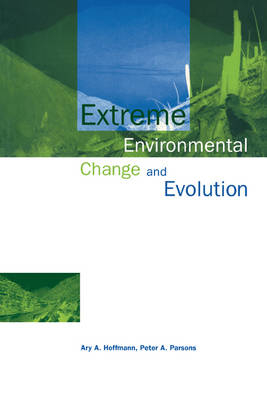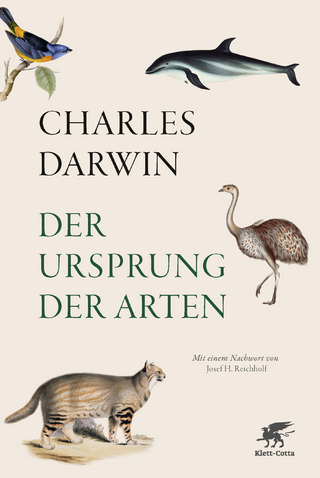
Extreme Environmental Change and Evolution
Seiten
1997
Cambridge University Press (Verlag)
978-0-521-44659-4 (ISBN)
Cambridge University Press (Verlag)
978-0-521-44659-4 (ISBN)
This book discusses how stressful environments can influence evolutionary change, and how periods of stress must be taken into consideration when long term conservation strategies are planned. It provides an overview of this topic for students and researchers in evolutionary biology, genetics and conservation biology.
Most natural populations intermittently experience extremely stressful conditions. This book discusses how such conditions can cause periods of intense selection, increasing both phenotypic and genetic variation, and allowing organisms with novel characteristics to be first generated and then established in the population. The authors argue that stressful conditions can have a major impact on the environment, backing up their arguments with evidence from the fossil record. They suggest further that, as a consequence, periods of stress must be taken into consideration when long term conservation strategies are planned, particularly as stressful conditions are becoming increasingly prevalent as a result of human activities. This broad overview will be of great interest to students and researchers in the field of evolutionary biology, genetics, ecology, palaeontology and conservation biology.
Most natural populations intermittently experience extremely stressful conditions. This book discusses how such conditions can cause periods of intense selection, increasing both phenotypic and genetic variation, and allowing organisms with novel characteristics to be first generated and then established in the population. The authors argue that stressful conditions can have a major impact on the environment, backing up their arguments with evidence from the fossil record. They suggest further that, as a consequence, periods of stress must be taken into consideration when long term conservation strategies are planned, particularly as stressful conditions are becoming increasingly prevalent as a result of human activities. This broad overview will be of great interest to students and researchers in the field of evolutionary biology, genetics, ecology, palaeontology and conservation biology.
Preface; 1. Introduction; 2. Variation under extreme environments; 3. Natural selection in extreme environments; 4. Limits to adaptation; 5. Evolutionary outcomes: comparative and optimality approaches; 6. Extinction, diversification and evolutionary rates; 7. Conservation and future environmental change; References; Index.
| Erscheint lt. Verlag | 10.7.1997 |
|---|---|
| Zusatzinfo | 16 Tables, unspecified; 71 Line drawings, unspecified |
| Verlagsort | Cambridge |
| Sprache | englisch |
| Maße | 154 x 228 mm |
| Gewicht | 400 g |
| Themenwelt | Naturwissenschaften ► Biologie ► Evolution |
| Naturwissenschaften ► Geowissenschaften ► Meteorologie / Klimatologie | |
| ISBN-10 | 0-521-44659-7 / 0521446597 |
| ISBN-13 | 978-0-521-44659-4 / 9780521446594 |
| Zustand | Neuware |
| Haben Sie eine Frage zum Produkt? |
Mehr entdecken
aus dem Bereich
aus dem Bereich
Komplette Neuübersetzung. Mit einem Nachwort von Josef H. Reichholf.
Buch | Hardcover (2018)
Klett-Cotta (Verlag)
48,00 €
Wie die Vernichtung der Arten unser Überleben bedroht - Der …
Buch | Softcover (2023)
Penguin (Verlag)
15,00 €


